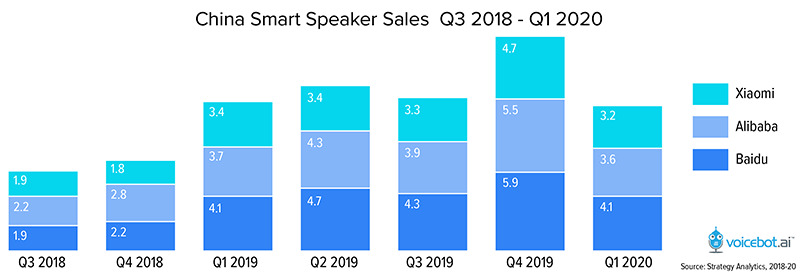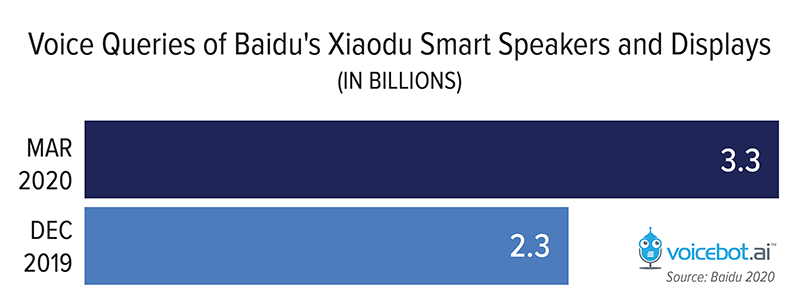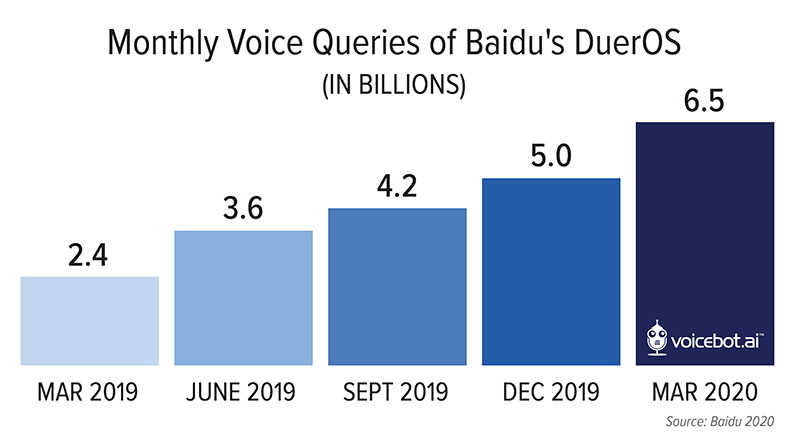Earlier this month Baidu announced a new “strategic partnership with Midea, China’s largest smart device manufacturers with 70 million smart home appliances on the market,” according to Tony Peng of Baidu. The partnership involves the ability to control Midea’s appliances using Baidu’s Xiaodu smart speakers either via a cloud connection or infrared. Appliances in at least sixteen categories included ranging from microwave ovens and dishwashers to smart lights, fans, refrigerators, and robot vacuums.
Peng told Voicebot in an email interview that the “two brands will also sell bundles of Midea appliances and Xiaodu products.” This is similar to the merchandising partnerships that Amazon and Google have struck with thousands of smart home device and appliance makers that enable Alexa and Google Assistant voice control. Both companies also frequently bundle the sale of their smart speakers with smart home devices and household appliances suggesting that the bundling approach is helping to drive sales.
Baidu and Midea a Collaboration of Market Share Leaders
Midea is the leading appliance manufacturers in China today. Its 2019 annual report shows the company with offline appliance sales market share of first or second in 15 of the 21 categories in which it competes. For online sales, Midea market share is first or second in 19 of 20 categories. The partnership with Baidu makes sense because the DuerOS voice assistant and Xiaodu smart speakers and displays have become the market share leaders in China as well as number three globally.

Baidu’s recent ascendance in smart speakers was not a forgone conclusion. In early 2018, Alibaba and Xiaomi were well ahead of Baidu in smart speaker quarterly sales and installed base. Baidu’s initial foray into the market was led by the premium-priced Ravan H smart speaker which only sold a reported 10,000 units and was discontinued in early 2018. However, it also rolled out a smart display in 2017 that proved popular, and in June 2018 introduced the first Xiaodu smart speaker which sold 10,000 devices in the first 90 seconds it was available online. By August of that year, the company was announcing DuerOS availability in over 100 million devices, most of which were not smart speakers, and that figure rose to 400 million just a year later.
Baidu Use Data Shows Rising Adoption
Beyond device market share, Baidu is reporting rapid growth in usage too. The company shared data with Voicebot about voice queries of its smart speakers which showed growth from 2.3 billion in December 2019 to 3.3 billion three months later in March 2020. That reflects over 43% growth in just a calendar quarter.

DuerOS, the AI behind Baidu’s voice assistant and smart speakers is available across many devices beyond the Xiaodu smart speakers. During the December 2019 to March 2020 quarter voice queries handled by DuerOS rose 30% from 5 billion to 6.5 billion. Going back four quarters to March 2019 that rise was 170%.

Baidu is in a strong position in China given its newfound market share leadership in voice assistants, smart speakers, and smart displays. Other leading device makers are likely to consider integration with DuerOS and Xiaodu compatibility a customer requirement going forward so the Midea announcement may just be the beginning of a trend.
Follow @bretkinsella Follow @voicebotai